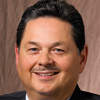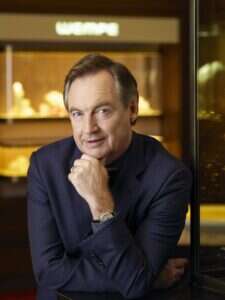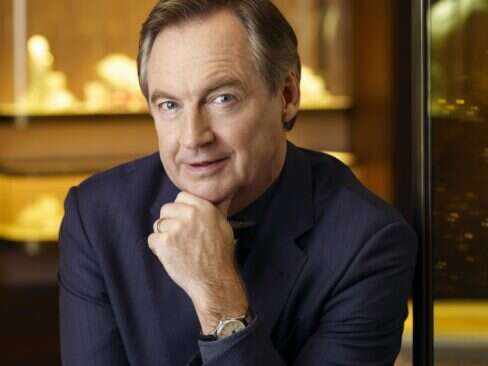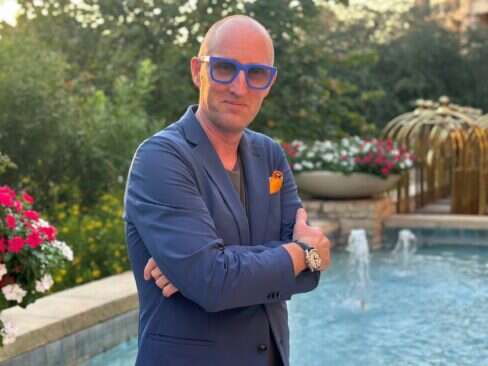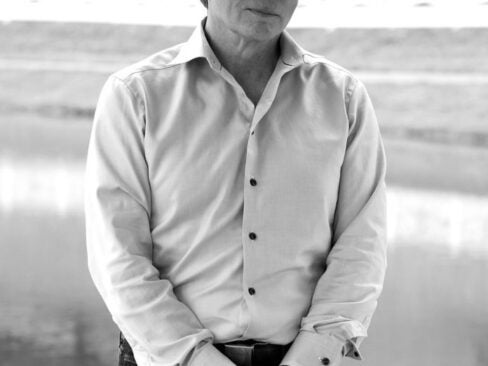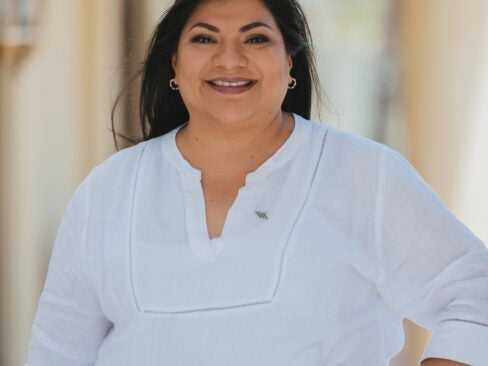
President and CEOMercedez-Benz USA
Ernst Lieb became President and CEO of Mercedes-Benz USA (MBUSA) in September 2006. As head of MBUSA, Lieb has overall responsibility for the sales, marketing and service of Mercedes-Benz and Maybach vehicles, parts and accessories in the U.S. market. MBUSA has a network of nearly 350 dealers throughout the U.S.
His career with the company began in 1975 in the former Daimler-Benz organization. He started as a spare parts specialist and in 1985, he joined Mercedes-Benz Canada where he held various positions culminating in his promotion to President and CEO of Mercedes-Benz Canada in 1995. Under his leadership, sales of Mercedes-Benz passenger cars in Canada more than tripled.
In April 2003, German-born Lieb became President and CEO of DaimlerChrysler Australia/Pacific Pty. Ltd., his most recent post. During that time, Lieb continued his involvement with the North American market by serving on the board of Mercedes-Benz Canada.
ET: With the automobile business in such turmoil, there is an idea that for those that can stick around, especially some of the European luxury brands, they’ll actually be in a stronger position than most. Is Mercedes one of those companies?
Ernst Lieb: I would say so. I mean, the question is, what do you define as strength? And I think at the end of the day, it’s really our dealer body who’s driving the business day-to-day. They’re the key. So, if they come out stronger, we’ll come out stronger. We’ll have to supply them tools and products, the research and development, the engineering, but they have to actually sell it.
So in times like this, the partnership has to be very close, and we all need to understand that we can only go so far with cutbacks and still make sure that the customers get the experience they deserve. So the key is that our dealers get stronger and stay strong during that period of time.
ET: Has the strategy over the past decade of Mercedes expanding its line, indeed you cover the spectrum from the Maybach to the C-Class, panned out?
Ernst Lieb: Absolutely, it has helped us to grow from the below 100,000 units to achieve a total number of 225,000 units last year. And, right now when you look at what we’re doing, it’s a replacement of existing models, it’s the E-Class Sedan, we’re bringing out a new M-Class hybrid that we didn’t have in the past. The expansion gave us the opportunity to grow and our dealer body needs growth. They need sustainable numbers because otherwise their investment in our products is not a good business proposition.
ET: Now that you’ve broadened the line, will there be attention paid again to the very, very high end?
Ernst Lieb: Mercedes-Benz has been always part of the high end. We’re the biggest manufacturer of autos over $40,000 and up. So there’s a clear positioning for Mercedes-Benz. This segments has been hit very hard over the past six to nine months. But, are we going to give it up? Absolutely not, we’re going too keep on strengthening our position there, maybe on a different level in terms of numbers, but in terms of market share, we definitely are not willing to give anything up. We’re down 30 percent, that’s awkward. But we are gaining share. So, we are okay. When conditions get better, we’ll already have a strong starting position. I was just down in Florida two weeks ago and there’s a $35 million facility going up in North Palm Beach. There is a beautiful new dealership in Coral Gables. Our dealers are doing their job, it’s up to us to do our job and make sure that they have the product they can sell.
ET: I know there’s a strong commitment from Mercedes for diesel, as well as some hybrids coming. Is there a market for diesel in the U.S.?
Ernst Lieb: Definitely. I mean, hybrid, diesel or any of the other fuel solutions are depending to a degree on what’s happening with fuel prices. Not too long ago we had $4 a gallon prices and so, hybrids began to get popular. Now we’re back down to $2, and everybody has calmed down. We’re seeing sales of SUVs again. Diesel has been an alternative in Europe for many, many years. It had been an alternative in Australia where I was before I came to the U.S. We had 60 percent diesel penetration. Now, there are a few obstacles. One is the fuel price. But then, for diesel specifically, there was fuel availability. We sorted that one out. But then it was the limited states we were able to sell them. We sorted that one out, now we’re in 50 States. Now it comes down to diesel fuel availability in general and where do I have to fill up my car? Do I have to go to the truck stop over there, or can I do it every other place I’m stopping?
Perception is probably the biggest obstacle. It’s dirty, it’s smelly. It’s always amazes me when we put someone into an S-Class diesel. The driver can’t even tell you that they’re driving diesel. Still, the market penetration we have today is pretty much the same as we had when we started. I think a car like the new E250 BlueTec diesel, with 44 miles per gallon is the right model, you’re not in a small A-Class. Right now we are building a base. In springtime next year we’ll have further expansion of our E-Class lineup, and then we’re looking at diesel engines for solutions in our smaller models where the fuel economy will be at least the same, maybe even better. And I think with that, over time we will build momentum on diesel. Diesel is a big, big part of Mercedes-Benz and we are determined to make it a big part here in the U.S. too.
ET: You’ve been at Mercedes for quite a while?
Ernst Lieb: Only 34 years.
ET: So, how did you start with Mercedes and when did you realize that this was going to be your life?
Ernst Lieb: Look, I’m born and raised in Stuttgart—as it should be. And I started with the company in 1975. I did a program where I went to university to study economics. And then, in 1978 I basically started to work for Mercedes, and I have to admit, the real reason that I took the job was just simply they were able to guarantee that I would be able to travel within three months. It was in the parts division.
ET: You got to travel the world actually.
Ernst Lieb: I was in my early 20’s, so why not? I spent a lot of time in the Middle East, you know, we’re very strong with the trucks there, heavy trucks, commercial vehicles. Then the former Eastern Bloc countries, a little bit of time in South America, Central America. If you travel with that frequency, you do that for a few years and you need to either stay with it, do it for the rest of your life, or to simply switch into something else.
I got married and figured I needed a switch. So I switched after about three years into IT. That was the time in the early 80s when we started to develop the first online parts distribution systems mainly for our subsidiaries abroad as well as for importers. So I was in that group for about three years. Within that timeframe I had the opportunity to travel twice to Canada. And in 1985, they asked me if I wanted to go to Canada to handle parts. I always wanted to go to North America, to be honest with you because I have relatives all over New Jersey. It’s unbelievable. On Thanksgiving last year we had 30 people in the house. They were all relatives of mine. We lived 18 years in Canada. I’ve got Canadian citizenship, my kids are born there, so we’re really Canadian Germans, whatever you want to call it. And I moved into sales, we have company-owned dealerships in Canada, quite a few.
I started to run them, then I became the National Sales Manager, and in 1995, the CEO left and I became the new guy. So from 1995 through 2002 I ran the Canadian operation, which was exactly at the time when we had all these new brand expansions.
In 2002 I was approached to go to Australia. Now, I was approached prior to that to do all kinds of things, and I always said no because I didn’t want to leave Canada, the kids were small. So, in 2002 I had no choice. We went very hesitantly to Australia. And we said, “If it doesn’t work, I’ll quit, we’ll go right back.” Six months into it: “This is too good to be true.” So we really loved it and then three and a half years into it I got the offer to come to the U.S. And, when I was 18 years in Canada, you always look at the U.S., you know, initially I wanted to come to the U.S. So, you know, why not? But the problem is now that that’s a bit of a challenge for us. My two oldest kids stayed in Australia.
ET: What were your biggest fears in taking the helm of U.S. operations?
Ernst Lieb: Two things I was afraid of. First, the dealer body, because I had the impression that the dealer body was pretty aggressive. They know the market, they tell us how to run it. It was a huge, very positive surprise that they all turned out to be very cooperative, and if you know how to deal with them and you get along with them and they start to trust you, you can succeed with them. I think we have in the last two and a half years created a fantastic dealer relationship. It shows in the surveys already coming in, maybe not to the extent we would like to, but there are 345 dealers. So, it’s not easy to convince all of them, but we have regular meetings, we do all kinds of programs. I believe in times like this, communication’s critical. I tell you what’s wrong on our end, you tell me what’s wrong and we find solutions for both of us. We put a video program together, all the Vice Presidents and myself, where we talk about the previous month – what went wrong, what went right. And we talk about the approach for the coming month –put emphasis on this, put emphasis on that. And, we feed it via out NetStar communication system so the dealers have the opportunity to view it at different times of the day. We did a test run of this strategy with the board members. We’ve got 12 elected board members and the majority of them loved it.
ET: Having lived all over the world, when you have an opportunity to go on vacation with your family, where do you tend to go?
Ernst Lieb: We have a few favorite spots. One is five hours north of Vancouver, 100 Mile House, The Flying U Ranch. You stay in cabins out of the 1920s. We love Australia, and especially like to visit the Outback, Alice Springs and Ayers Rock. I’ve also sailed around Hayman Island twice with friends. It’s breathtaking.
ET: Of the whole line of Mercedes offerings, if you had one to pick and that’s going to be the car for the rest of your life, which would you hop into?
Ernst Lieb: Probably the CLK Black Series. You know, when we get new cars for the press fleet, I usually take a car and say, “I’ll drive that car for two days and let’s see how it feels.” So, when I took the CLK Black Series, I didn’t give it back.





